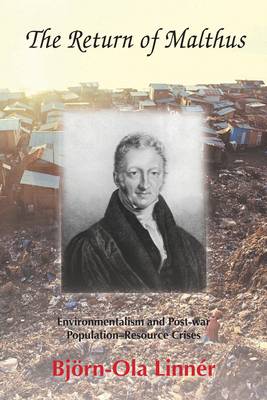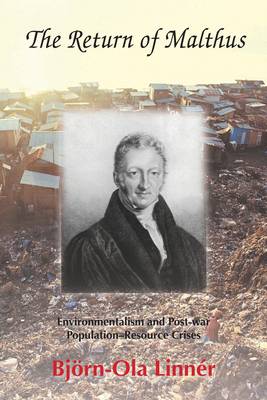
- Afhalen na 1 uur in een winkel met voorraad
- Gratis thuislevering in België vanaf € 30
- Ruim aanbod met 7 miljoen producten
- Afhalen na 1 uur in een winkel met voorraad
- Gratis thuislevering in België vanaf € 30
- Ruim aanbod met 7 miljoen producten
The Return of Malthus
Environmentalism and Post-war Population-Resource Crises
Björn-Ola LinnérOmschrijving
The Return of Malthus is the first comprehensive analysis of the post-war fear of scarcity. Linnér traces the development of an international discourse of crisis through the influence of such thinkers as William Vogt, Fairfield Osborn and Georg Börgström, labelled 'neo-Malthusians' for their emphasis on an impending clash between population growth and resource limits, after the manner of the nineteenth-century father of scarcity economics. The book analyses the role of science and technology in securing food supply, the transmutation of older ideas about preserving nature into a new conservation ideology based on sustainable use, and the preoccupation of the industrialised nations with forestalling communism and controlling power relations.
First published by The White Horse Press in 2003. Even more relevant today, this revised edition charts perceptions of and prescriptions for crises of population growth and resource shortage, which have had profound influence on agricultural, population and security policies from the Second World War to the present.
Specificaties
Betrokkenen
- Auteur(s):
- Uitgeverij:
Inhoud
- Aantal bladzijden:
- 342
- Taal:
- Engels
Eigenschappen
- Productcode (EAN):
- 9781912186747
- Verschijningsdatum:
- 1/05/2023
- Uitvoering:
- Paperback
- Formaat:
- Trade paperback (VS)
- Afmetingen:
- 152 mm x 229 mm
- Gewicht:
- 503 g

Alleen bij Standaard Boekhandel
Beoordelingen
We publiceren alleen reviews die voldoen aan de voorwaarden voor reviews. Bekijk onze voorwaarden voor reviews.











